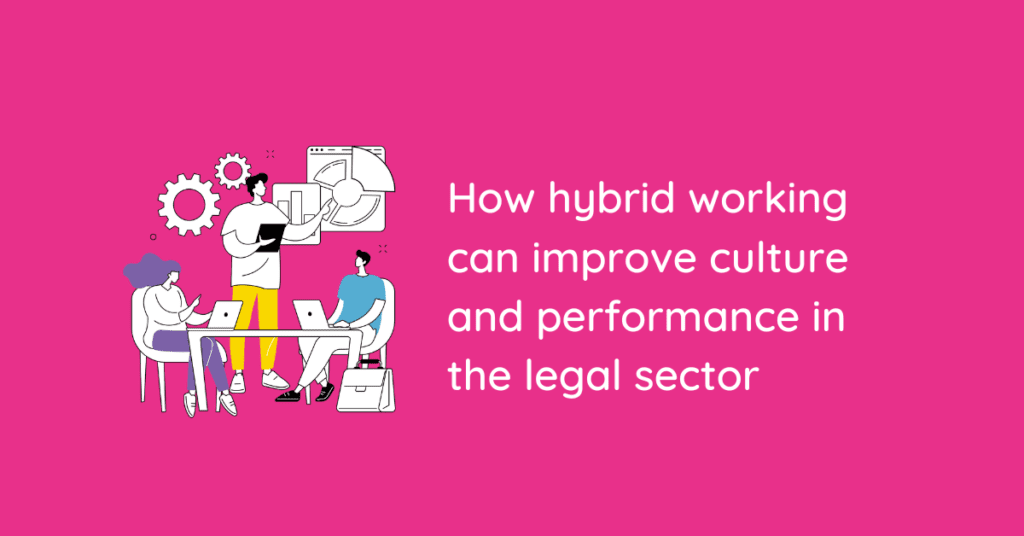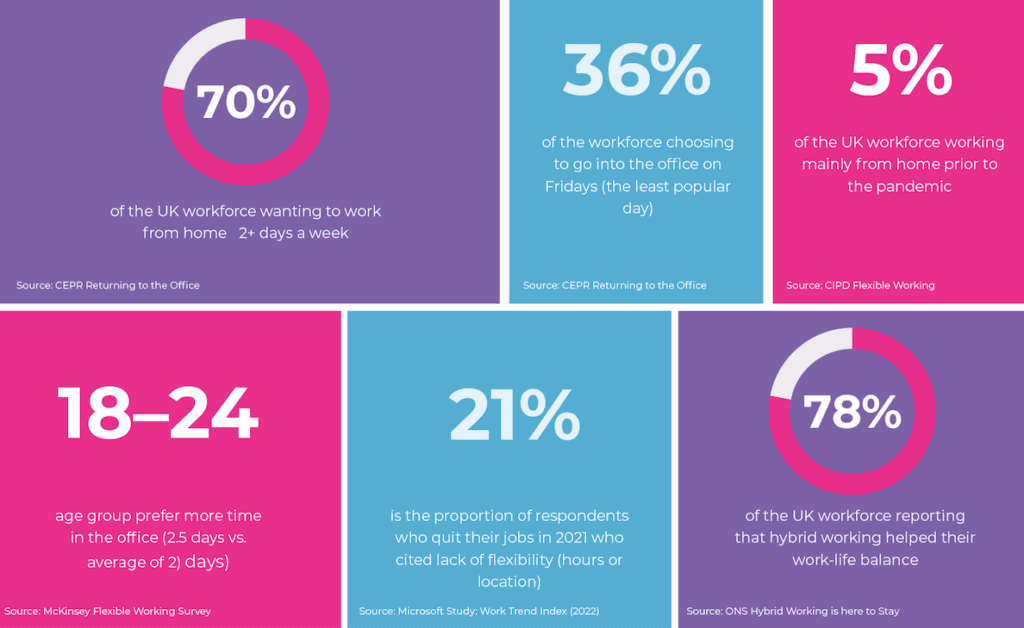
Using Hybrid Working to Improve Your Culture and Performance
Partners across the legal sector are struggling to get teams back into the office and still face huge challenges with attraction and retention of talented solicitors.
While the legal sector had already explored hybrid working to an extent pre-pandemic, developing a clear working model is now essential. While more than half of firms have brought in policies around hybrid working practices, 45% of staff say they would look for a new job if told they had to attend the office full-time. Almost as many would leave if they had to work at the office more than three days a week.
Recent research published on the BBC found that the average number of days people are going into the office across sectors is only 1.5. So it is likely that enforcing a predominantly office-based culture will backfire in the long-term.
Pecan’s experience of supporting clients to adopt a deliberate approach to hybrid working shows that it can drive up engagement, retention, productivity and wellbeing. All of this ultimately improves profitability.

Be deliberate
Focusing on minimum days in the office drives an unhelpful culture of presenteeism and quiet disengagement with ways of working.
Instead, successful organisations start by agreeing the outcomes they want to achieve – not just hours billed but also attraction and retention goals, absence rates, client feedback.
Once the outcomes to be achieved are clear, this simple five-step approach uses hybrid working to improve your culture and drive performance in a way that works for employees as well as the organisation, as far as possible.
- Firm review and learn – Use short surveys and focus groups to find out what’s working and what’s not, in the office and at home. Explore all aspects of work such as software, the type of work activities, differences in role, mindset and behaviours and in particular any ‘unwritten rules’ that are emerging about ‘how we do things around here’. Identify how current working patterns are helping or hindering achievement of the firm’s outcomes and the culture needed to be successful.
- Firm Guiding principles – Use the insight gathered to establish a small number of guiding principles that set mutual expectations across the firm and are applicable for everyone. For example
-
- Place of work is chosen based on maximising individual wellbeing and productivity and the firm’s requirements of the role, not line manager preference
- Activities take place where clients will have the best possible experience
- Teams create the office conditions required for new starters/early careers to thrive as quickly as possible
- Team game plan – Provide conversation frameworks to help each leader or manager work through how to apply the principles in their team. The conversations must be open and honest, reaching consensus on working practices that will help the team achieve their outcomes and work for each individual as far as possible. For example
-
- Whether the days in the office are fixed or flexible
- How time in the office will be used
- Any boundaries needed to prevent individuals burning out or feeling unsupported
- Skills development – Leading hybrid teams does not come naturally to everyone and senior partners may be in as much need of some support with this as junior managers. Skills that frequently need strengthening include
-
- Managing people to outcomes rather than presenteeism
- Having difficult conversations which balance compassion with challenge
- Managing productivity and wellbeing levels across teams
- Facilitating on-line meetings effectively that promote diversity and inclusion
- Team review and learn – Teams must review their game plan frequently to reflect openly on what’s working and what’s not. Feedback should be gathered from people impacted by the team such as other teams and clients, to fully understand how working practices are impacting productivity, wellbeing, profitability and client experience.
If you would like to know more about how to make hybrid working successful in your firm, Book A Call with Ella here or Andy here or email [email protected].
References:
https://www.legalfutures.co.uk/latest-news/lawyers-will-walk-if-hybrid-working-demands-not-met
